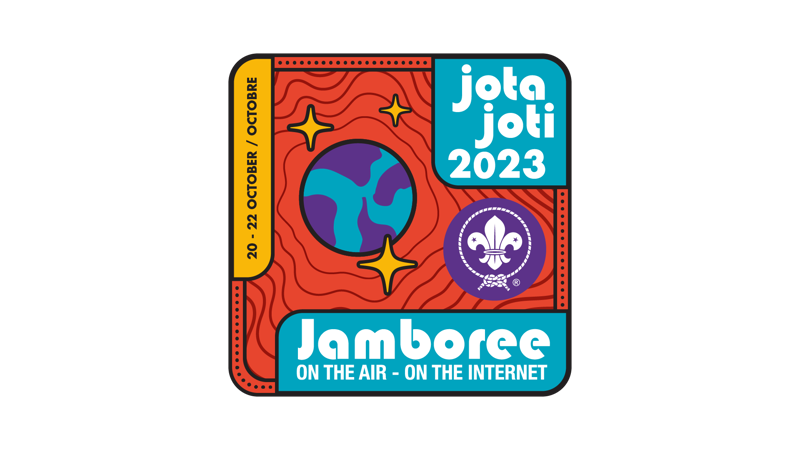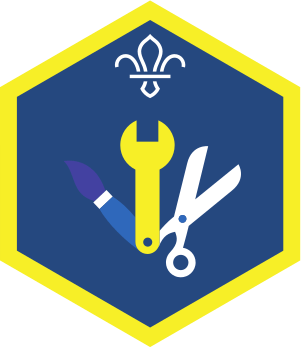
Virtual letter towers
You’ll need
- Pens or pencils
- Scrap paper
- Device with access to the internet
Before you begin
- Use the safety checklist to help you plan and risk assess your activity. Additional help to carry out your risk assessment, including examples can be found here. Don’t forget to make sure all young people and adults involved in the activity know how to take part safely.
- Make sure you’ll have enough adult helpers. You may need some parents and carers to help if you’re short on helpers
Staying safe online
This activity’s designed for you to run during an online session. Take a look at our advice on using Zoom and other popular digital platforms, as well as guidance to help everyone to stay safe online.
Make sure that the person leading the game is the meeting host and that they know how to use the waiting room function on Zoom – there’s more information on the Zoom blog.
Setting up this activity
- Gather together lots of prop and household items that people can use in this activity, such as balls, cushions, spoons, tea towels or towels, sports equipment, broom, TV remote, mugs, frying pan, mixing bowl, fruit, children's toys, and so on. You'll need to have more props than people.
- You can have multiple of the same item, but different sizes, colours and shapes.
- You could ask people to bring three items in from home.
Planning the meeting
- Arrange to make contact with Scouts from another country. There are lots of ways to get in touch with Scouts in other countries.
- Explain that Jamboree on the Air and Jamboree on the Internet (JOTA JOTI) is an event specially designed to connect Scouts all over the world – it usually happens in October each year.
- Everyone should chat about how they’ll introduce themselves and get to know a bit about the other group too.
- This is a great time to remind people about staying safe online and not sharing personal information. If they’re uncomfortable or unsure about anything, they should chat to a trusted adult.
Before the JOTI-JOTA meeting
- Ask each young person choose a six-letter word. People could work in pairs.
- Young people should then find an object that begins with each letter of the word they chose.
- For example, for the word ‘circus’ someone could find a chair, an ice cube tray, a ruler, a cookbook, an umbrella and a spoon.
- Everyone should build a tower from these objects before the meeting starts. They want to create an anagram of the world. The objects don't need to be in the right letter order, so you could do spoon, ice cube tray, cookbook, umbrella, chair and ruler to create an anagram of ‘circus’.
- You could build an example tower of your own to show everyone, which may be the example above.
Build towers
- Everyone except the person leading the game should mute themselves.
- The person leading the activity should show everyone their example tower.
- They should explain that people need to find the first letter of each item. They then need to put the letters in the right order and unscramble the anagram to make a word.
- Everyone should take a few minutes to try to find the word. It may help to write their guesses on a piece of paper, starting with the names of the items, then rearranging the letters.
- When the time is up, the person leading the game should ask people for their answers. People could put their hands up to share their answer and unmute themselves when it's their time to speak.
- People could say the word they have or read out the letters they were guessing with if they’re unsure.
- Once people have had a guess, the person leading the game should tell them the answer and the names of the objects they chose.
- Everyone should take it in turns to show off their tower.
- Everyone else should spend a couple of minutes writing down their guesses. A few people could share their guesses, then the person whose turn it is should reveal the correct answer.
- Keep going until everyone’s had a chance to share their tower.
Reflection
This activity needed everyone to problem-solve while being independent by making their own decisions and building their own tower. Did people find it challenging to choose a word and find the right items around their house?
Did anyone have to change their word? Why was it difficult to complete that word?
People may have had tricky letters (such as Z or V) or maybe the same letter repeated too many times. Can anyone remember an especially creative item they noticed someone else using?
Safety
All activities must be safely managed. You must complete a thorough risk assessment and take appropriate steps to reduce risk. Use the safety checklist to help you plan and risk assess your activity. Always get approval for the activity, and have suitable supervision and an InTouch process.
- Online safety
Supervise young people when they’re online and give them advice about staying safe. Take a look at our online safety or bullying guidance. The NSPCC offers more advice and guidance, too. If you want to know more about specific social networks and games, Childnet has information and safety tips for apps. You can also report anything that’s worried you online to the Child Exploitation and Online Protection Command. As always, if you’ve got concerns about a young person’s welfare, including their online experiences, follow the Yellow Card to make a report.
It’s up to you how long the word is. You could ask people to make a three or four-letter word for a quicker, simpler game.
To make it easier, you could ask people to have the first letter of their word at the top of their tower to make it easier for people to guess the word. You could also ask people to just swap two letters in their word around.
If that’s still too complicated, you could give each person a letter – they should find as many objects as possible beginning with the letter, then everyone could guess the letter and how many objects there are.
If anyone doesn’t want to show their tower on the video call, they could ask a leader or friend to show everyone.
Make sure people know that they can pass, or just say the letters they’ve found, if they don’t know the answer.
If people may struggle with spelling or words, they could work with a friend or in small teams.
All Scout activities should be inclusive and accessible.

